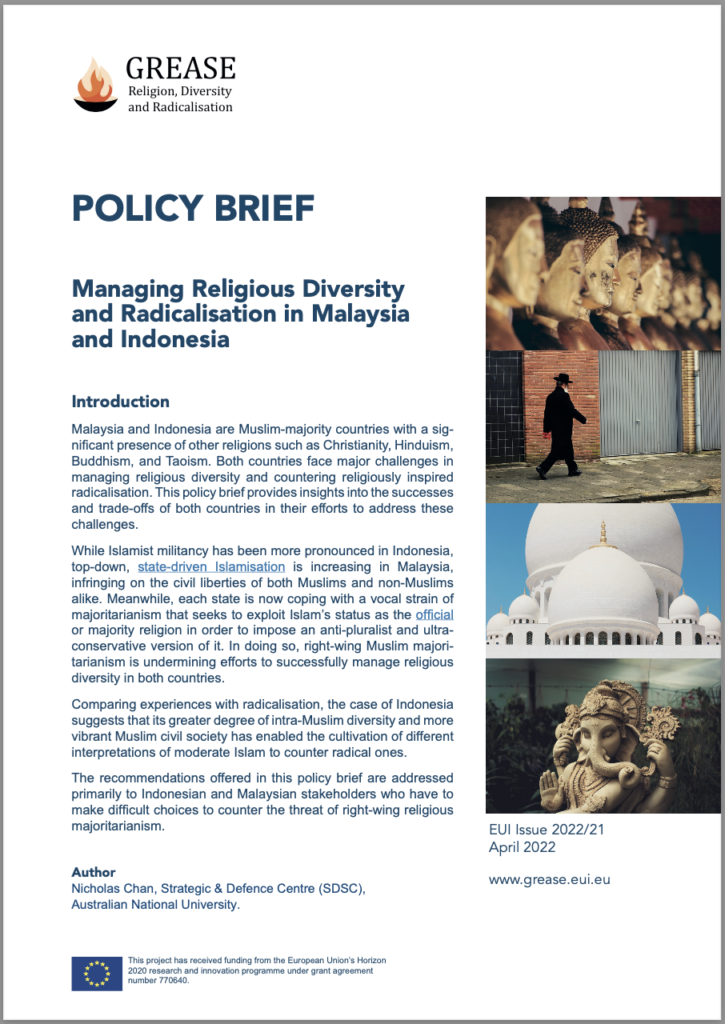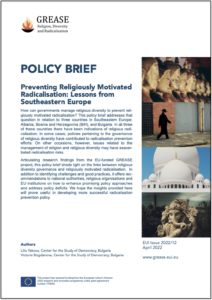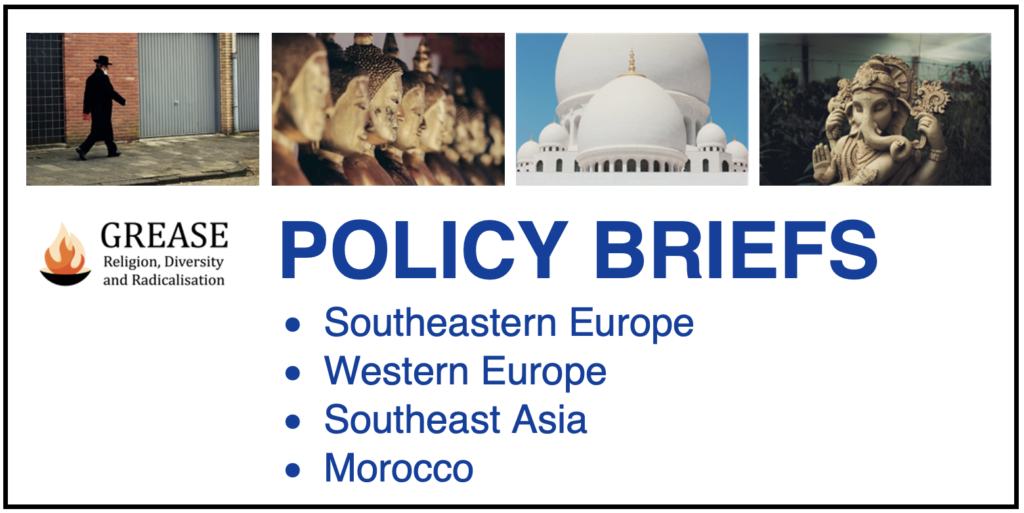
Managing religious diversity and preventing violent radicalisation are major policy challenges. Conceived with these challenges in mind, the GREASE project produced insights of a high scholarly standard that can also be used to inform policymaking. Our policy briefs are designed specifically for this purpose.
Focusing on four world regions, the policy briefs below are aimed at government officials, administrators, religious institutions, and NGOs involved in crafting and implementing policy. Our policy briefs are compact (eight pages or less) and have a three-part format consisting of an introduction, an evidence and analysis section, and recommendations.
Available now in the GREASE Policy Brief series:
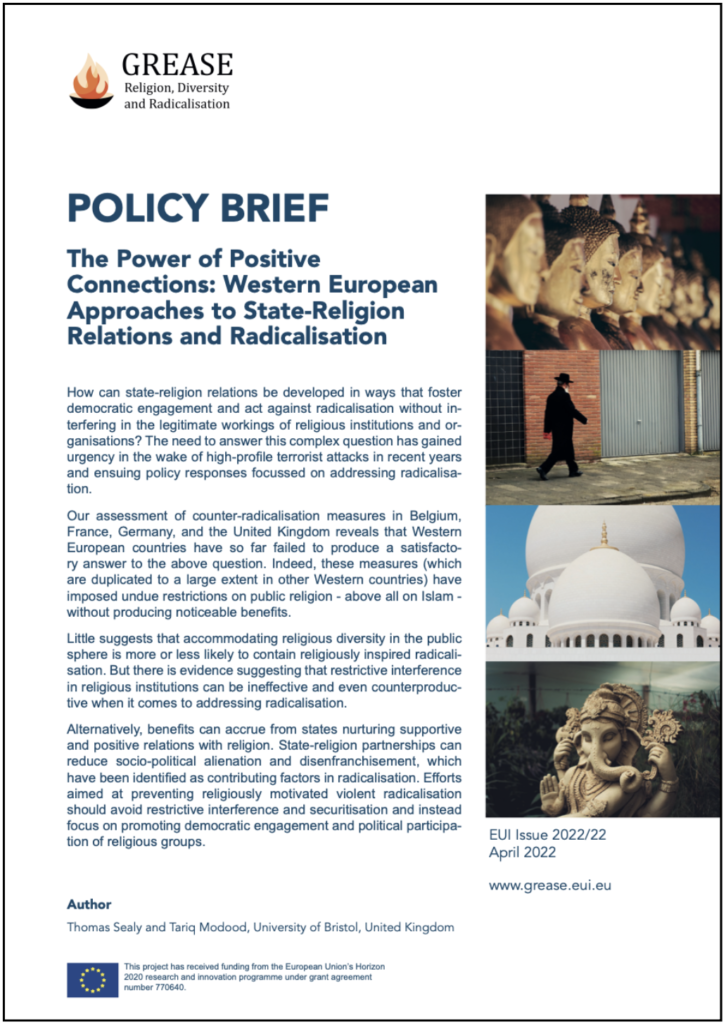
The Power of Positive Connections: Western European Approaches to State-Religion Relations and Radicalisation
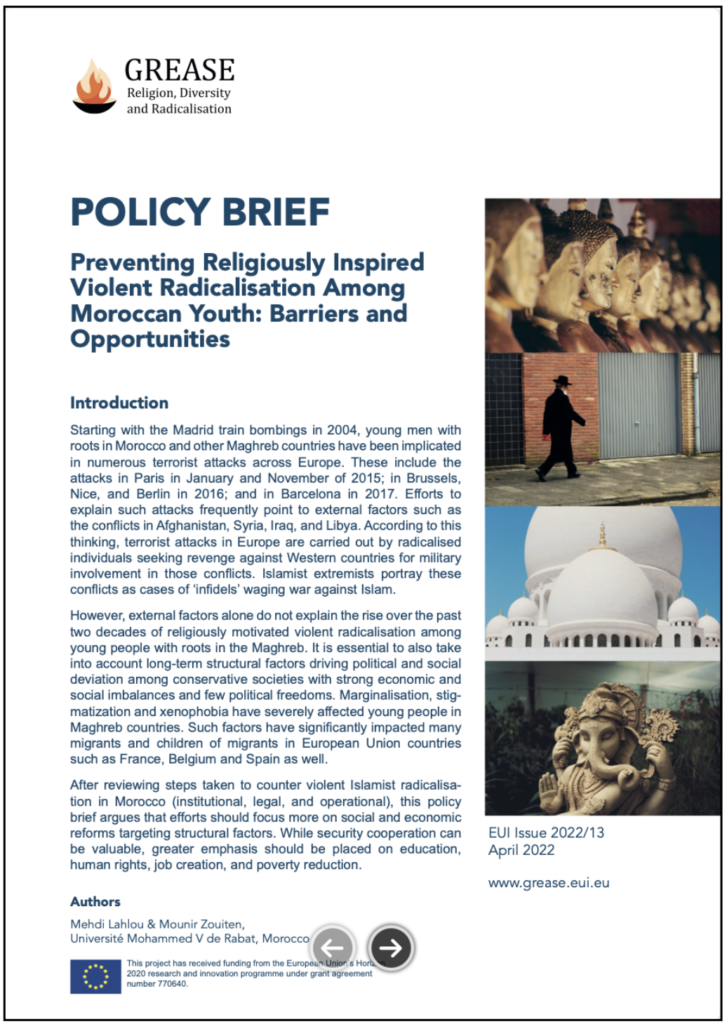
Preventing Religiously Inspired Violent Radicalisation Among Moroccan Youth: Barriers and Opportunities
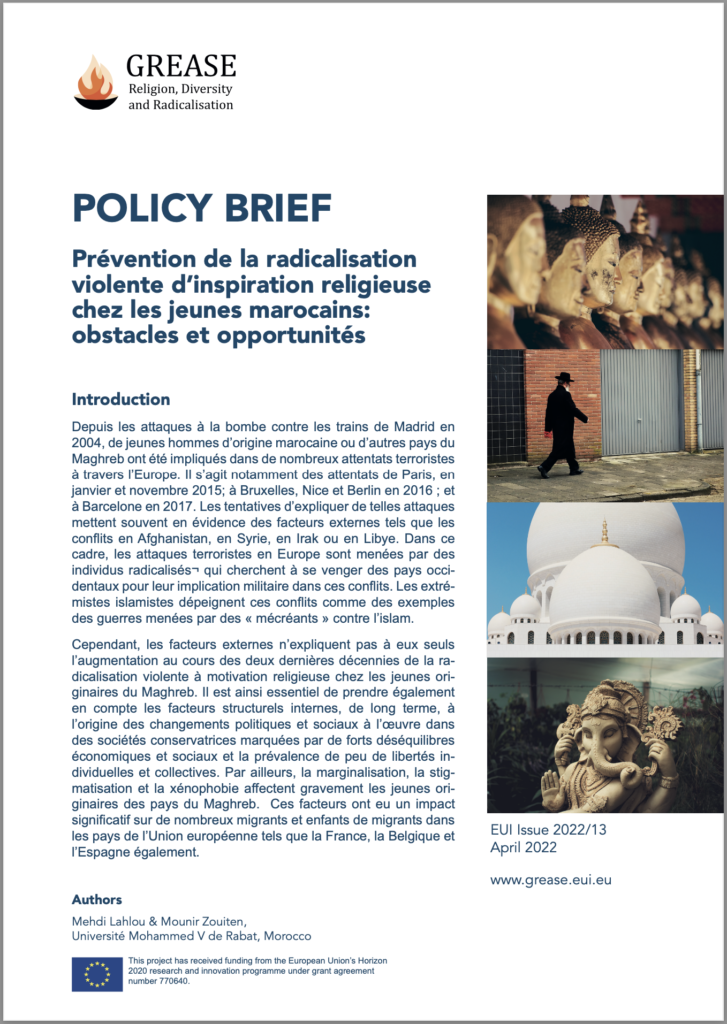
Prévention de la radicalisation violente d’inspiration religieuse chez les jeunes marocains: obstacles et opportunités
Questions addressed in the GREASE policy brief series:
- How can religiously motivated (or attributed) violent radicalisation be countered effectively while upholding fundamental rights?
- What impact are current counter-radicalisation policies having?
- How do different configurations of state-religion relations affect social cohesion and inclusion?

